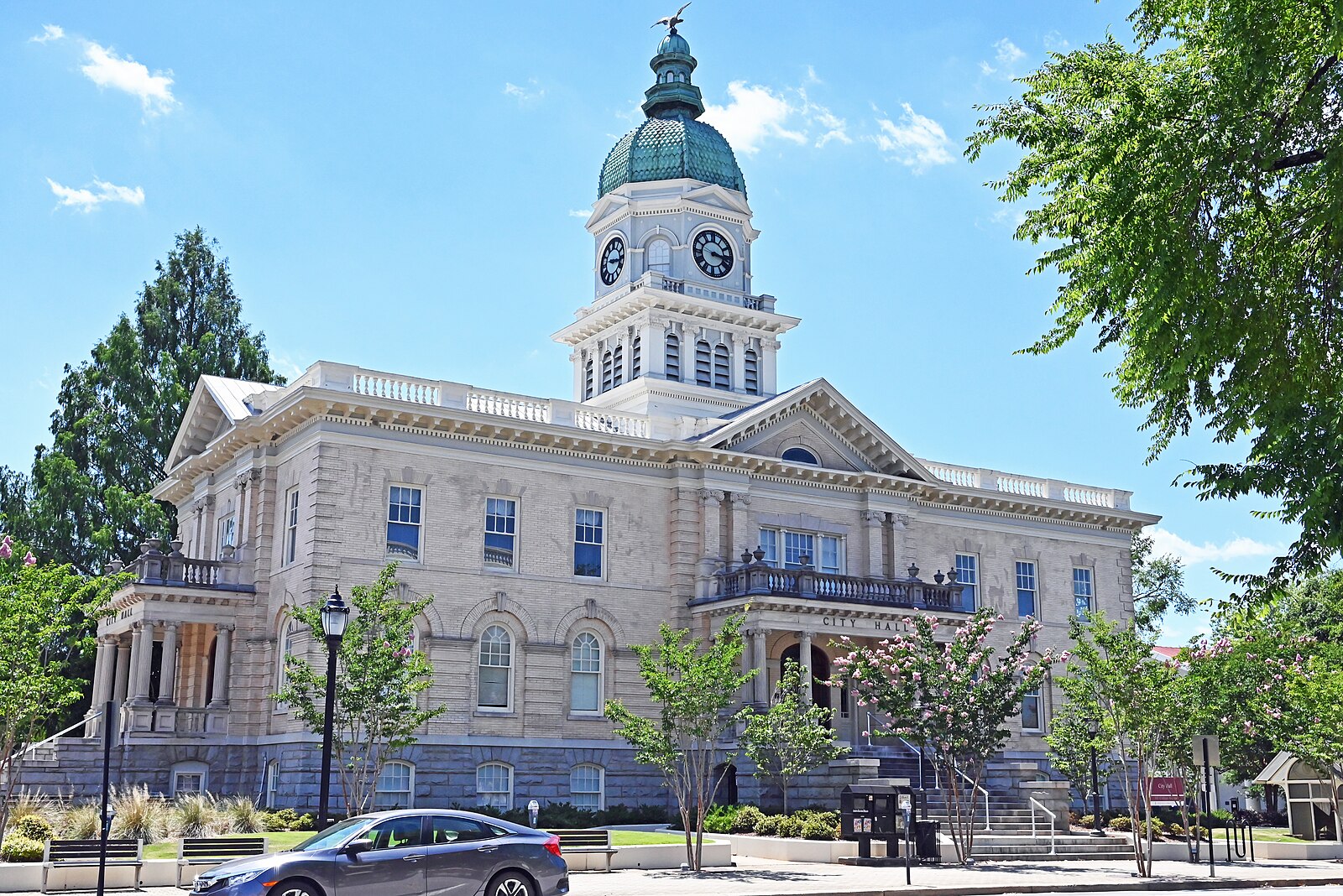When it comes to choosing where to retire, most people focus on sunshine, scenic views, and the cost of living. But what many overlook are the sneaky tax rules that can quietly chip away at your retirement income. Just because a state is popular with retirees doesn’t mean it’s financially friendly across the board. From unexpected taxes on Social Security to higher property taxes and estate surprises, these states come with fine print that could cost you more than you realize. Before you pack up and make the big move, here’s what you need to know about the hidden tax traps waiting in some of America’s most sought-after retirement destinations.
1. Florida’s Phantom “No Income Tax”

You roll up to Florida thinking you’ve hit the retirement jackpot—no state income tax, sun-drenched beaches, and zero state-level whammy on your Social Security or 401(k) withdrawals. But heads-up: Uncle Sam still has his hand out. Once your “combined income” (that’s your AGI plus half your Social Security) tops $25,000 as a solo filer—or $32,000 for couples—up to 50% of your benefits can get hit with federal tax, and that climbs to 85% if you breach $34/$44K, respectively. Translation: even in a state with zilch income tax, your retiree bliss can be punctured by federal brackets.
And don’t even get me started on homeowners insurance—think of it as Florida’s unspoken surcharge on paradise. Thanks to hurricanes flexing their muscles, the average retiree in the Sunshine State now shells out over $11,000 a year on homeowners’ coverage—yep, that’s more than a third of the typical pension check. Between sky-high premiums and flood-zone surprises, that “tax-free” life starts looking like a mirage. So before you toss your flip-flops in the trunk, run the numbers on both your federal bracket and your roof-protecting policy.
2. Texas’s High Sales-Tax Ambush

“Don’t mess with Texas”—but have fun buying groceries, grilling out, or decking out your new casita, because the Lone Star State makes up for zero income tax with a killer sales-tax combo. The state rate is 6.25%, and localities can tack on up to 2%, for a max of 8.25% on everything from tacos to TikTok merch. That means every plate of barbecue and batch of boots gets a little extra sting.
If you’re on a fixed income, those “just a couple dollars” at checkout can sneakily nibble away at your nest egg. Sure, groceries and prescriptions dodge the tax bullet, but think about all those weekend pizza runs, handyman visits, and even ride-shares—you’ll feel like you’re funding state coffers with every swipe. It’s the Wild West of sales tax out there, so pad your budget and maybe lean into the farmers market instead of the strip-mall chain.
3. Tennessee’s “Hall Tax” On Investment Income

Nashville’s honky-tonks and hot chicken might scream “no income tax,” but Tennessee used to have a sneaky little levy called the “Hall Tax” that clipped about 6% off your interest and dividends. Even though Tennessee repealed it for tax years beginning January 1, 2021, the state legislature still flirts with bringing it back whenever budgets tighten.
So if you’re living off CDs, bonds, or dividend-paying stocks, watch those sessions of the state assembly like they’re the Grammy Awards—legislators could revive that Hall Tax faster than a country tune goes viral. Tennessee could always do an encore on taxing “unearned” income if revenue dips too low. Your safe bond ladder? Might not be so safe after all.
4. Pennsylvania’s Surprise Inheritance Tax

Pennsylvania touts a modest 3.07% flat income-tax rate, but it hits heirs with a stealth toll booth on the way to your legacy. Transfers to spouses ride through tax-free, and lineal descendants (kids, grandkids, parents) get a 4.5% pass—but everyone else (think siblings, friends, or neighbors) might face a hefty 15% bite on whatever they inherit. That means the china set you thought your niece would cherish—or the condo you earmark for your bestie—could be subject to a surprise state grab before anyone even lays hands on it.
Life-insurance proceeds and jointly owned property? Yup, those usually don’t slip through for free, either. Unless you funnel your fortune to a charity (which is always exempt), Pennsylvania’s inheritance tax can turn your sentimental gear into state revenue—so plan accordingly or watch your heirs scramble for some creative estate planning.
5. New Hampshire’s Interest And Dividend Tax Trap

Granite Staters brag “no sales tax, no wage tax”—but if your nest egg includes interest or dividends, New Hampshire slaps a 5% levy on any income above $2,400 for singles and $4,800 for joint filers. That means your picture-perfect portfolio of blue-chip stocks and conservative CDs can snare you in a hidden income-tax net. Even worse, those thresholds haven’t kept pace with rising yields—so savvy retirees chasing inflation-beating returns can easily hit the cap and find themselves paying the state extra on every dollar above the limit.
You think you’re tucked into a tax-free corner of New England, but that “hidden” 5% can feel like a bait-and-switch when April rolls around. Time to consider Roth conversions or municipal bonds—anything that keeps your dividend dreams from turning into a small-state squeeze.
6. South Carolina’s Disappearing Retirement Exemptions

South Carolina once rolled out the welcome mat with a $5,000-per-person exemption on retirement income, making even modest pensions feel like free money. Recent budget battles, however, have chipped away at that cushion for higher earners, leaving folks in the middle brackets scrambling. Now, instead of a clean break under that $5K threshold, tiered phase-outs mean your taxable income can creep up in ways you never saw coming. That shift hits retirees drawing modest IRAs and 401(k) distributions especially hard, since they lose a chunk of that exemption dollar for dollar.
If you’re a dual-income household or enjoy a slightly heftier pension, you could suddenly find thousands of dollars in state taxes on what you thought was safe, steady income. For long-term planners, those surprise bills can turn a carefully balanced budget into a scramble for new deductions or credits. What felt like a rock-solid rule is now political whim, changing with each new legislative session. It pays to stay plugged into the State Treasurer’s updates or your CPA’s quarterly newsletter. Otherwise, that dream of sipping sweet tea on the porch could come with a bitter aftertaste when April rolls around.
7. Georgia’s Property-Tax Upsells

Georgia flat-out promises seniors a cap on property-tax increases, but only on your primary residence, and only if you apply for the freeze. Want a beachside condo or a mountain cabin? Those get no pity. In tourist hot spots like Savannah or the North Georgia lakes, full-blown market values can skyrocket, pushing annual bills through the roof. You might qualify to freeze taxes on your main home at today’s value, but that single cottage you rent out on Airbnb will still climb in assessment each year.
And don’t forget the application deadline—miss it by even a day, and you’re stuck paying the higher levy for that whole tax year. Generational property-tax relief also only applies if you bought your home before age 65, so newcomers often miss the boat. Planning to downsize later? Your new digs might not qualify, meaning the benefits you counted on could vanish just when you need them most. It’s a classic bait-and-switch: cap your cozy bungalow, but let anything beyond that balloon unbridled.
8. North Carolina’s Estate-Tax Cliff

North Carolina abolished its estate tax back in 2013, handing a big high-five to anyone dreaming of leaving a tidy nest egg. But whispers in the legislature suggest a comeback for estates valued north of $6 million, meaning high-value homes and portfolios could find themselves subject to a sudden 10-15% levy. If you’re sitting on a prime piece of coastal property or own a few million in stock, that cliff could shave off hundreds of thousands—maybe more—before your heirs ever see a dime. It’s the kind of cliff you don’t see until you’re already over it, thanks to draft bills that float under the radar until they gain steam.
For families that have spent decades building real-estate empires or retirement accounts, it’s a gut punch when your legacy hits the chopping block. Worse still, unlike federal estate planning rules, the NC proposals don’t offer generous exemptions for family farms or small businesses. You could be forced into distressed sales or forced gifting strategies just to dodge the levy. And once it’s in place, repeal looks politically unlikely—especially with budget gaps to fill. Keep your eye on Raleigh, because today’s tax-free utopia could morph into tomorrow’s nightmare overnight.
9. Alabama’s Split Personality on Retirement Income

Alabama rolls out the red carpet for traditional pensioners, letting defined-benefit payouts glide in tax-free—but if you’ve rolled that pension into an IRA or 401(k), brace yourself for sticker shock. Those distributions still count as taxable income, meaning you get rewarded for sticking with “old school” government or corporate plans but penalized for modern rollover flexibility. Retirees who inherited or consolidated plans often find themselves in the latter camp, wondering why their fellow retirees are sipping sweet tea tax-free while they’re writing checks in April. To make matters more confusing, Social Security income is partially taxable at the state level if you exceed certain thresholds, so your total tax picture can become a patchwork of exceptions.
And with Alabama’s relatively low overall rates, a little taxable retirement income can still feel like a big bite when you’re on a fixed budget. Converting to a Roth IRA can seem tempting, but that triggers taxes all at once—and Alabama will ding you for that conversion too. The result? A tax maze where your choice of retirement vehicles drastically changes your state-tax bill. Planning and professional advice are crucial, otherwise you might inadvertently paint yourself into a higher-tax corner. At the end of the day, Alabama’s tax code rewards the retirement option you might be least likely to have—so choose wisely.
10. Washington’s Capital Gains Gambit

Washington State may wave the “no income tax” banner, but it quietly tacked on a 7% capital-gains tax in 2022 for gains over $250,000, targeting precisely the wealthy retirees living off stock and real-estate sales. If you sold your long-held Airbnb cabin or cashed out a chunk of your investment account, that big payday could come with a heavy state-tax surprise. The law exempts most retirement-account distributions, but any taxable asset sales over the threshold face a steep bite. What felt like a refuge for income-driven retirees suddenly became a minefield for asset-rich folks.
And since many affluent retirees depend more on portfolio draws than on wages, this levy hits their lifestyle plans harder than a rainy day in Seattle. Families considering large gifts or property transfers need new tactics, because the old playbook no longer applies. Plus, legal challenges and administrative guidelines are still evolving, so compliance can be tricky. Anticipate extra paperwork, potential penalties, and the need to rework your estate-planning strategy. Washington’s gambit flipped the script for retirement-income planning, turning a tax-free allure into a capital-gain chokehold.
11. Nevada’s Tourism-Driven Bed Tax

Nevada boasts zero state income tax, but it makes up for that by piling on “resort” and “transient lodging” taxes that can add 10–15% to your hotel, Airbnb, or rental-car bills. If you split time between a retirement home and visits from out-of-town grandkids, expect their stays to come with a hefty surcharge. Even locals can’t escape: Nevada taxes short-term rentals like regular hotels, so renting out a spare room nets the state an extra cut. And Clark County (that’s Las Vegas) can tack on additional levies for convention and entertainment districts.
For those who travel within the state frequently—whether to Reno’s casinos or Lake Tahoe’s slopes—these hidden fees add up fast. Your fixed income budget feels the squeeze long before you hit the slot machines. It’s a tourism tax that locals end up footing, and it rarely makes headlines since it’s buried in your final bill. So if you plan to host family over holidays or rent out your condo for extra cash, factor in an additional 10–15% hit on top of your nightly rate. Nevada’s “what happens here” mantra doesn’t apply to resort taxes—they’ll happen to you whether you like it or not.
12. Arizona’s Retiree Income Phase-Out

Arizona’s tax code gives retirees a sweet $3,500 exemption for pension or Social Security income, but starts chipping away for households earning above certain adjusted gross income thresholds. That means a couple who clears $90,000 a year could see their exemption dwindle or vanish completely, even if most of that income is fixed and predictable. It turns a cozy nest egg into a moving target—one year you’re under the line, the next you’re suddenly paying full state rates on dollars you thought were exempt. The phase-out schedule is convoluted, with credits blending into deductions in a way that feels like a tax maze.
And since AGI calculations can be slipperier than a cactus in a rainstorm, even savvy retirees can miscalculate what they owe. Overlooking a single rollover or part-time gig can tip you into taxable territory overnight. If you rely on part-year consulting or hobby income, it can be especially tricky to budget for April. To keep stress low, many retirees hire CPAs just to track that phase-out curve. Without that extra headcount, your retirement spreadsheet might come with a surprise state-tax charge.
13. Delaware’s Financially-Crushing Property Levy

Delaware proudly touts some of the nation’s lowest property-tax rates, but what they don’t advertise is a stealth “mansion tax” that kicks in on luxury homes often valued surprisingly low—sometimes around $500,000 in certain counties. What seems like a moderate estate can trigger higher millage rates once you cross that invisible line, boosting your annual bill by thousands. The tax maps and brackets shift county by county, meaning you might pay normal rates in one town and a premium in the next zip code over. And since the state reassesses values more frequently than many others, you could find yourself shoved into the “conspicuous consumption” bracket with little warning.
Seniors on fixed incomes who’ve lived in the same home for decades can suddenly face unaffordable spikes purely because of market booms. Rolling exemptions or senior-freeze programs can help, but they’re capped and competitive. Also, applying requires strict deadlines and proof of continual occupancy—miss the paperwork, and back taxes accumulate interest. It’s a property-tax cliff that pops up beneath your feet, and Delaware’s quaint tax system doesn’t always come with safety rails.
14. Mississippi’s Means-Tested Breaks

Mississippi offers a generous break by exempting retirement income—pensions, Social Security, and IRA withdrawals—for taxpayers under an adjusted gross income ceiling, but once you nudge past that limit, every extra dollar gets taxed at flat rates up to 5%. That means a modest part-time gig or a big year in portfolio gains can unexpectedly erase the exemption you’ve counted on. Mid-range retirees feel this trap hardest: you’re too “rich” for free retirement income but not wealthy enough for more advanced tax-planning tools. There’s no gradual phase-out: it’s an abrupt jump from zero tax to full rate once you exceed the threshold.
The state also limits deductions on medical expenses and charitable giving, so those strategies don’t help as much as you’d expect. It’s like a cliff rather than a ramp, and financial advisors warn clients to stay safely under the line or be ready for a bump in April. Keeping AGI below the cutoff often means sacrificing income opportunities or accelerating Roth conversions. If your spending plans hinge on that exemption, a small miscalculation could cost you thousands.
15. Colorado’s Senior Homestead Hangup

Colorado’s homestead exemption for seniors can slash your property-tax bill significantly—but only if you’ve lived in your home continuously and file your application every single year by the deadline. Skip one renewal or move to a temporary rehab facility for a few months, and the state can retroactively revoke your exemption, slapping you with back taxes, interest, and penalties. The rules also require notarized proof of age and residency, meaning a lost form or misplaced signature can come back to haunt you. If you downsize or relocate to a retirement community even briefly, you risk resetting your residency clock.
Local assessors have leeway to interpret “continuous residence” strictly, so what seems like a minor absence could disqualify you. And many county offices send only a single reminder postcard—if it ends up in the junk pile, you’re out of luck. Seniors with health issues who need temporary care are especially vulnerable to this trap. The result? A nice break one year, a huge surprise bill the next, and a scramble to appeal. Continuous vigilance becomes as important as paying the property tax itself.
This article is for informational purposes only and should not be construed as financial advice. Consult a financial professional before making investment or other financial decisions. The author and publisher make no warranties of any kind.








